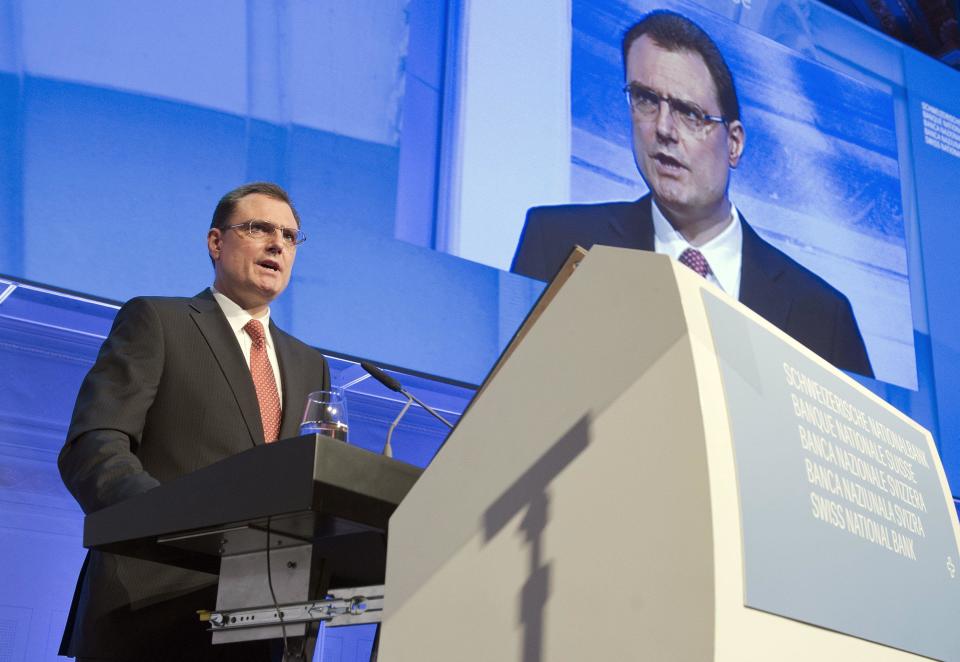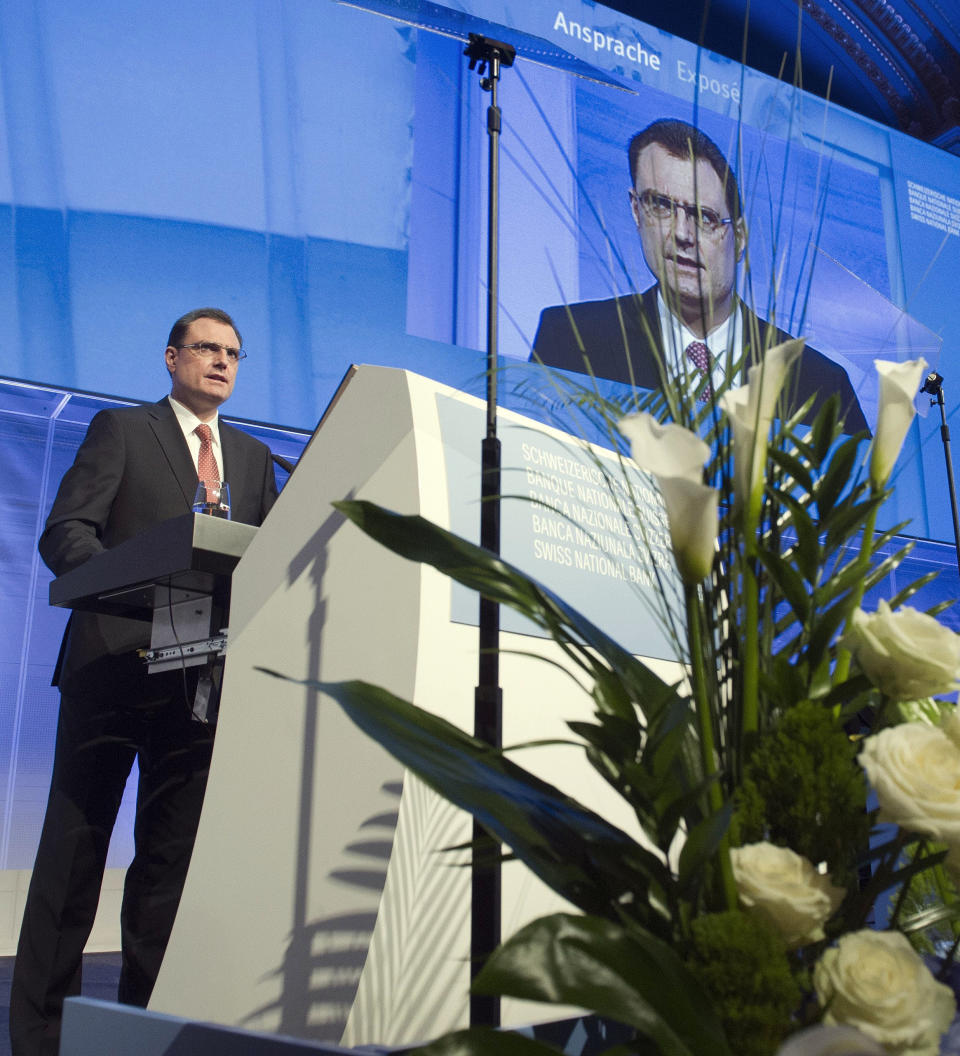Swiss central bank chief sees 1 percent growth
GENEVA (AP) — Switzerland's central bank chief said Friday he expects a growth rate of about 1 percent for 2012, causing a rise in unemployment but no risk of inflation for now.
The outlook from Thomas Jordan, the new chairman of the Swiss National Bank, for a nation whose currency serves as a safe haven amid the economic turmoil of Europe and the United States, also included subdued optimism for the global situation.
"The latest economic statistics suggest that the international economic recovery will continue, although growth rates are likely to be on the low side by comparison with typical recovery phases," Jordan told a general meeting of SNB shareholders in the Swiss capital Bern.
"The debt reduction process which private households in the U.S. are currently undergoing and the consolidation of government finances in several European countries, in particular, are dampening economic activity in the short term. Nevertheless, the recovery should gradually gain some strength," Jordan said in a prepared speech provided to news media.
Jordan said that as a result of the central bank's expansionary monetary policy and efforts to weaken the overvalued Swiss currency, interest rates in Switzerland are likely to remain low for a while longer.
"Overall, the SNB expects moderate economic growth of close to 1 percent for the year 2012. This modest economic momentum is likely to be reflected in a moderate increase in unemployment over the course of the next few quarters," he said.
While there appears to be no risk of inflation in Switzerland in the foreseeable future, Jordan said the low interest rates are starting to create "imbalances" and "signs of adverse developments in the Swiss mortgage and real estate market for residential property."
The Swiss Cabinet appointed Jordan as the new chairman for its central bank last week. He replaced Philipp Hildebrand, who resigned in January due to public furor over his family's private currency trading.
Since last summer the Swiss National Bank has taken several steps to halt the rise of the franc against the euro, including moves to increase the franc's liquidity and to set a minimum exchange rate for the euro of 1.20 Swiss francs.
Jordan said the minimum exchange rate has been effective, but "future economic growth in our country will once again depend on developments in the international economy."
Switzerland's economy declined by 1.9 percent in 2009, during the global financial crisis, according to World Bank data. It rose by 2.7 percent in 2010, and the Swiss government estimates growth in 2011 was 1.9 percent.



